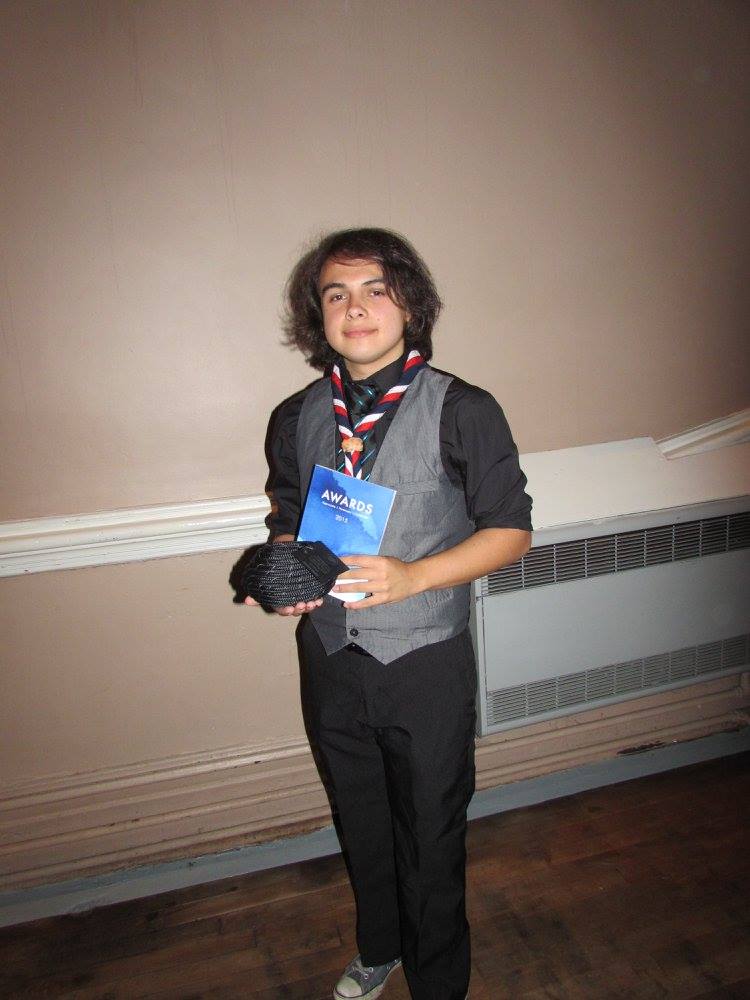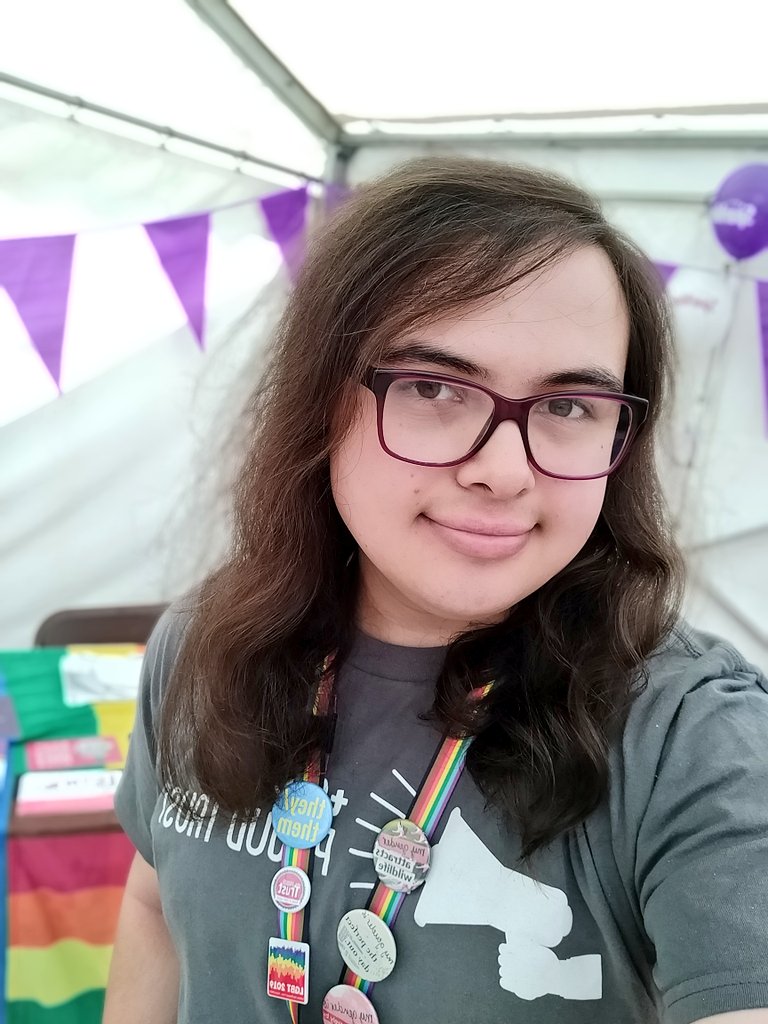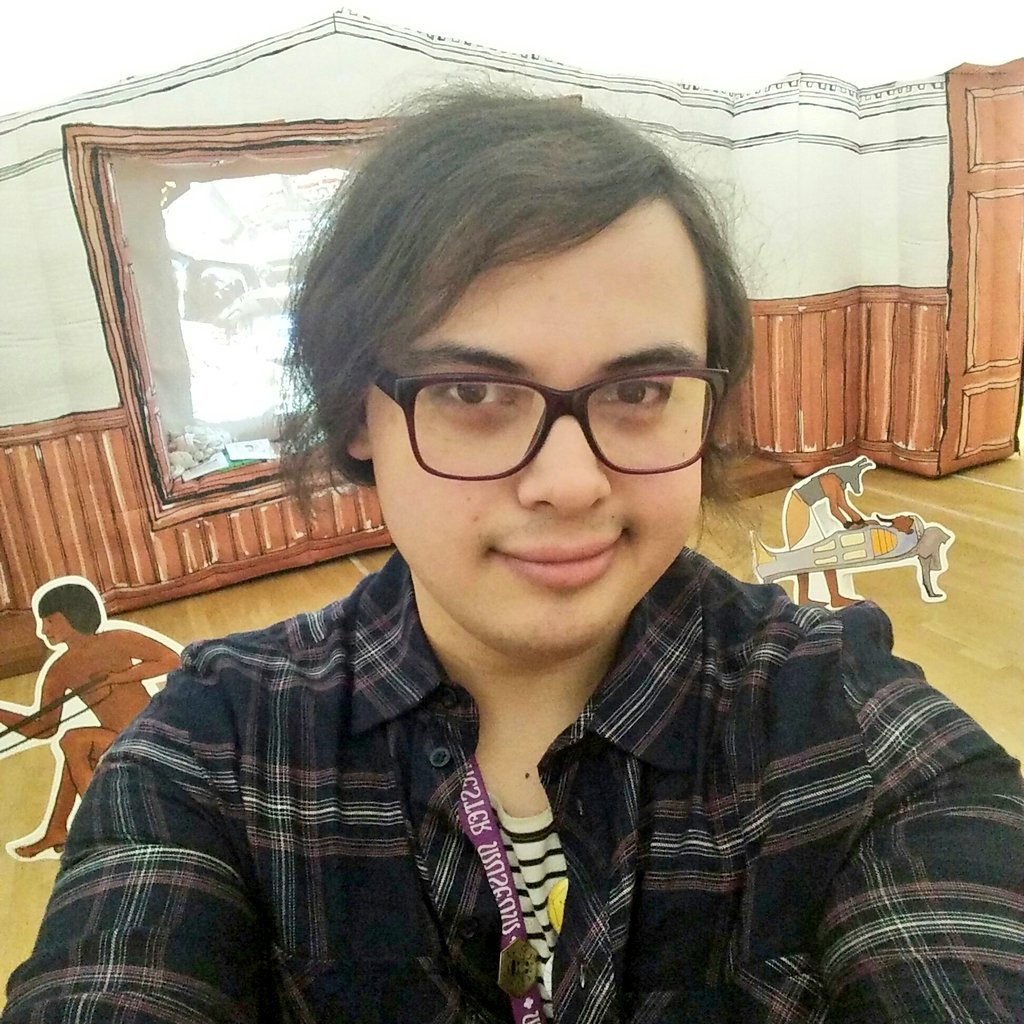We are looking back on some of our MSc graduates who have excelled in scientific research, ecology and conservation around the world since studying with us.
Today we meet Mattie who graduated from MSc Evolutionary & Behavioural Ecology in 2017. Mattie is now a Trans Youth Work Coordinator at The Proud Trust alongside their role as a Learning & Engagement Assistant at Manchester Museum.
Mattie, it’s been a few years since you studied with us, why don’t you tell us a bit about your career in that time that led you to where you are now?

I volunteered on Manchester Museum’s family programme outside of term time all through my undergraduate and postgraduate programmes, which led to a zero-hour contract as a facilitator when I moved back to Manchester in 2015/2016. Once I had my foot in the door, I worked on a few different projects, leading to a contract in 2018 on the inflatable museum project as part of the primary learning programme. My current job title is inflatable museum support assistant, but I also work on a few other learning and engagement projects. At the same time, following my move back to Manchester, I began engaging in the local trans communities and used my experience in scouting and in university societies to set up new community groups and develop existing ones. My experience doing this as a volunteer led to a role as a trans youth worker with The Proud Trust in 2018, where I’ve picked up more hours and responsibilities, with my current job title being trans youth work coordinator.
That’s great! What first attracted you to study your MSc at the University of Exeter, Penryn Campus?
The unique nature of the evolutionary biology undergraduate programme (especially at the time I applied in 2011, when it was the only such course available in the UK) was a big draw, but ultimately it came down to location. I wanted to get as far away from home as possible, and by the beach in rural Cornwall was about as far as I could get from urban central Manchester. The campus was small and navigable, and the sense of community from the mix of Exeter and Falmouth students really appealed to me.
We’re glad you love it as much as we do! What are your highlights from studying at the University of Exeter?
When I think back to what I enjoyed most during my time at Penryn Campus, it’s the people. I made friends for life on my course and on related courses, in different schools, in Falmouth University, and in the local community. I appreciated having a small but open campus, where students of different disciplines intermingled. Long hours spent writing essays in the library were made all the more tolerable not just by my course mates, but by my friends on other courses.
I think everyone who studies biosciences at Penryn Campus comes away saying the field courses were the best experiences, and they’re not wrong. I have extremely fond memories from the postgraduate field course in Kenya, as well as chasing buzzards across Scotland and trekking through the mountains of Borneo in my undergrad.
What made you choose your career path (or two!)?

What my two jobs have in common is creating caring and inclusive spaces, and to help people see themselves reflected. The core of my role at Manchester Museum is the inflatable museum project, which is just as bizarre as it sounds. Imagine a bouncy castle with no floor, in the shape of Manchester Museum and about the size of a school hall. I go into primary schools – and the occasional secondary school or community fair – and deliver sessions focusing on ancient Egypt and other topics using real museum objects. The shock and awe never get old, and it’s really rewarding. But I could never do just one thing.
The core of my role at The Proud Trust is running groups for trans youth. It’s also really rewarding and I enjoy a lot of aspects, from playing games and joking around to creating safe spaces for young people to explore their identity, rights, and history. But more so than enjoy it, it’s work that is important to me. Things can be hostile for trans people, especially trans youth, in the UK right now. My work involves a lot of mental health intervention and strategising to shift the public narrative around trans young people, so their own stories and their own voices can be heard. My own mental health has faced challenges, not least of which whilst I was studying at university, and that experience is why this work is so important to me.
How do you think the MSc helped to prepare you for your career?
The knowledge and passion for biosciences is something that will never leave me, but it’s the so-called “soft skills” that have been most useful for job applications: learning how to write a skills-based CV, how to approach a project, how to present, and how to manage a team.
My “extracurriculars” really helped me stand out too: setting up The Natural Selection podcast with fellow MSc biosciences students, volunteering as a beaver scout leader in a local scout group, and running the tabletop gaming society, amongst others.
And finally, do you have any advice for those looking to pursue something similar?

Your mental health is just as real and just as important as your physical health. Go at the pace you need, and access support services. It’s never the wrong time to do so – whether you’ve just arrived on campus or your days away from graduation. Expand your circles. Make friends on other courses and get involved in extracurricular societies – you never know what those friendships will bring you and who will end up being your most useful contacts. Whatever your sector, remember to advocate for yourself and others – and join a union!
Thank you Mattie!
If you want to read more profiles from MSc Evolutionary & Behavioural Ecology graduates follow this link or explore our Graduate in Focus homepage to learn more about the degree programmes we have on offer!

